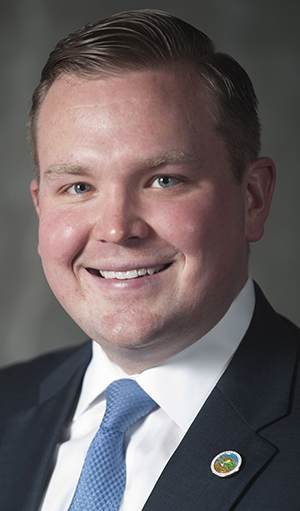
October 31, 2016
Like so many of the millennial generation, I was brought up to believe that higher education is the key to achieving success. As the first member of my family to graduate from college, I felt an enormous sense of pride upon receiving my bachelor’s degree; proud that my hard work in school had paid off, and optimistic about what the future may hold. To this day, I continue to believe that my degree and academic experience opened so many doors for me following graduation, including the honor of serving as a Camden County freeholder.
That said, what I also encountered upon graduation is the difficult reality of the immense burden of student loan debt.
Camden County Freeholder Bill Moen
In most cases, students arrive at this unfortunate position because the costs of higher education in America have dramatically increased. According to U.S. News and World Report, over the past 20 years, tuition rates and fees have skyrocketed with increases of over 200 percent for public universities, and student loan interest rates have skyrocketed alongside them. The state's higher education student loan financing entity is currently offering 20-year loans with interest rates as high as 8.23 percent. Private lenders are offering fixed-rate student loans at 11.85 percent.
This trend is deeply troubling. The Federal Reserve Bank has shown that since 2005, overall mortgage debt for millennials has decreased while student loan debt has increased. This problem affects more than just student borrowers; it affects the health of our housing market and the nation at-large. Simply put, these costs are unsustainable for our economy.
This is not an easy problem to solve, but if all stakeholders recognize it as a top priority then I believe we can begin moving in the right direction. Assembly Majority Leader Louis Greenwald is taking a positive step forward by sponsoring legislation that will give county improvement authorities the tools they need to meet this challenge. Under Greenwald’s legislation, county residents will be given the opportunity to refinance their student loans at more affordable rates through their local improvement authority – all at no cost to county taxpayers.
As interest rates continue to increase and regulators struggle to address this issue, we in Camden County are more determined than ever to fight for college affordability and explore creative options to alleviate the burden of debt for our constituents. As a county freeholder, and someone who personally understands this burden with his own share of student loans, I will continue to advocate strongly for innovative and effective prescriptions to the student loan debt crisis.
This bill may not be a silver bullet that will fix the problem by itself, but it is a much-needed step in the right direction, and it will make a meaningful difference in the lives of Camden County’s students and families.
• • •
Bill Moen is serving his first term as a member of the Camden County Board of Chosen Freeholders.
 Camden County Freeholders Board//
Camden County Freeholders Board//